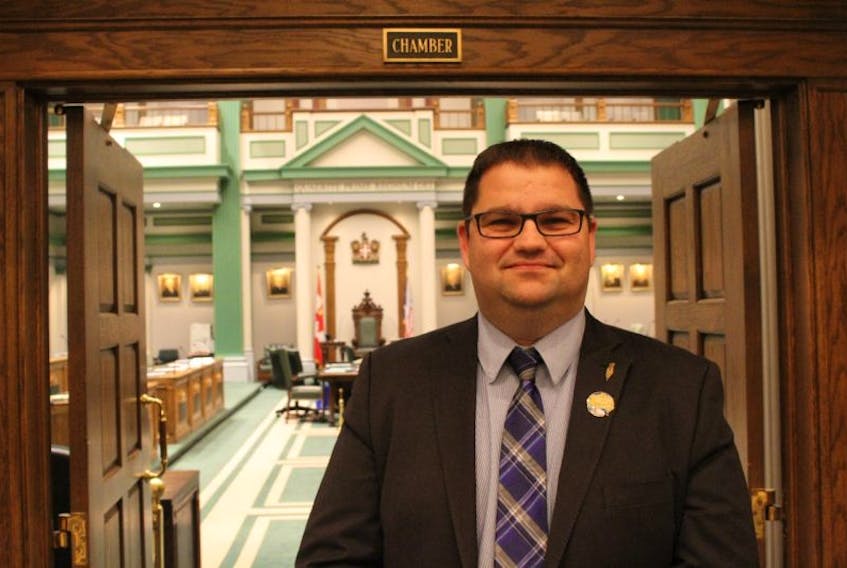“The benefit for the MHAs is reduced, and the risk is assumed by the MHAs to manage that fund,” Davis said. “I’m 37 years old. If I’m so lucky as to get re-elected again, I don’t want to be here at 85 years old still collecting a pension on behalf of the taxpayers of the province.”
This past Monday, Liberal House Leader Andrew Parsons revealed at the House of Assembly Management Commission that the government will push to shift the MHA pension plan from a defined-benefit system to defined-contribution.
At the same time, the Newfoundland and Labrador Liberal Caucus Twitter account posted a letter from caucus chairman Randy Edmunds saying their proposal will save taxpayers $5.2 million.
Multiple sources have told The Telegram that the defined-contribution proposal really did come from the Liberal caucus — it wasn’t driven by the premier’s office or by Parsons.
When The Telegram asked Edmunds about it, he said the person to talk to was really Davis.
“For the long-term sustainability of government in general, I’m in favour of that type of approach,” Davis said in an interview. “And for me, it was something that I believed in strongly enough to speak on a couple of times, and then more and more of our caucus became engaged in this and liked the idea of moving in this direction because it was better for the taxpayer.”
Under the current House of Assembly pension, MHAs pay nine per cent of their salary towards the pension, and the government provides a defined-benefit pension. But because the benefits are extremely high, the money in the pension fund is never enough to cover the costs, so the government has to kick in extra money from general revenue.
Davis said the new proposal will be “similar.” MHAs will contribute nine per cent, the government will match that, and the money will go into an account where the MHAs can manage their own investments.
“Hopefully you’ll get growth. If not, well, you deal with what you have,” he said.
Davis said he’s a believer in the idea of a defined-contribution plan, because it takes a huge burden off the government. He was on city council when the City of St. John’s moved to a defined-contribution plan as well.
“The fiscal situation that we’re in, every million dollars or hundred thousand dollars that you can save is big,” Davis said.
“It’s a game-changer for the long-term sustainability of the pension plan, but also for the taxpayers.”
Only a few months ago, the same backbench Liberal MHAs were leading the charge for the government to partially reject an independent study of MHA pensions — protecting the “gold-plated” pensions for current MHAs.
Davis said that was just the initial shock from politicians learning their pensions would be changed.
“At the time, there wasn’t much opportunity to do some research and put the time in place to figure out what the best alternative would be going forward for all parties, but, more importantly, the taxpayer,” he said.









